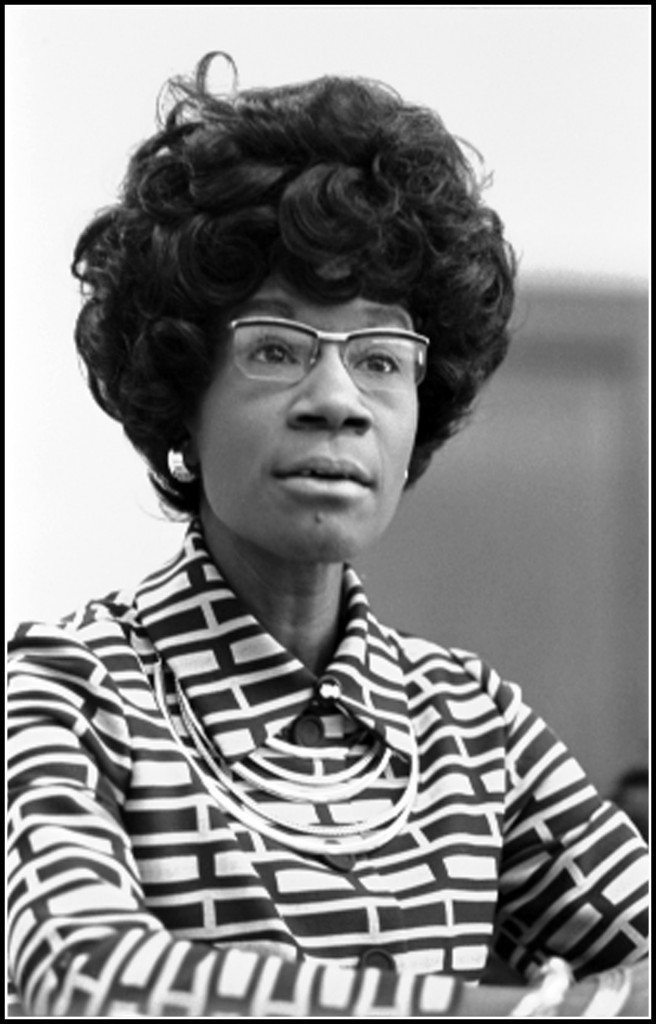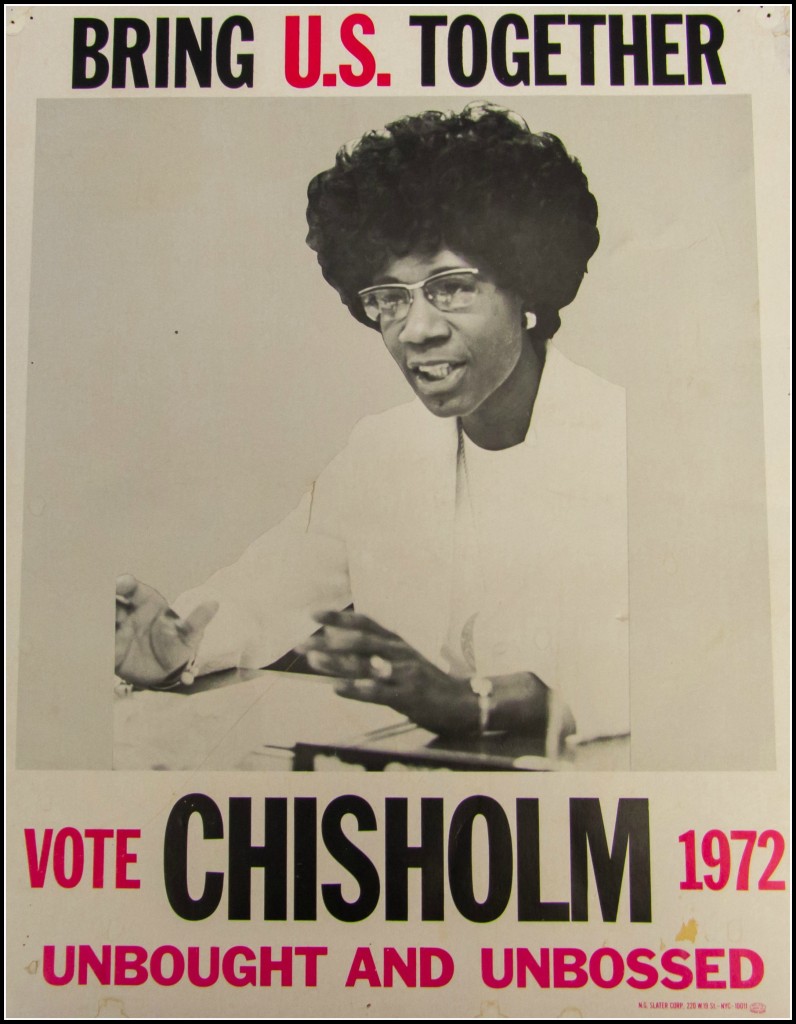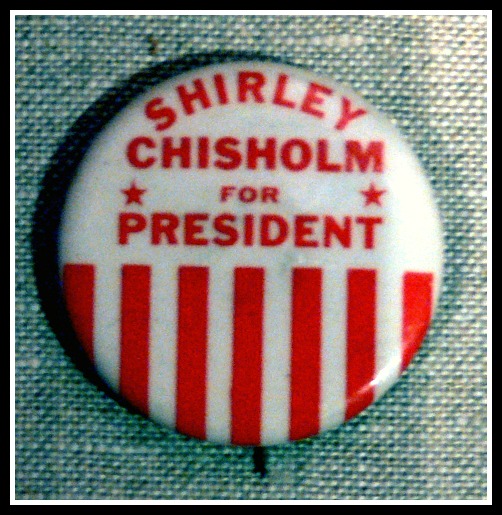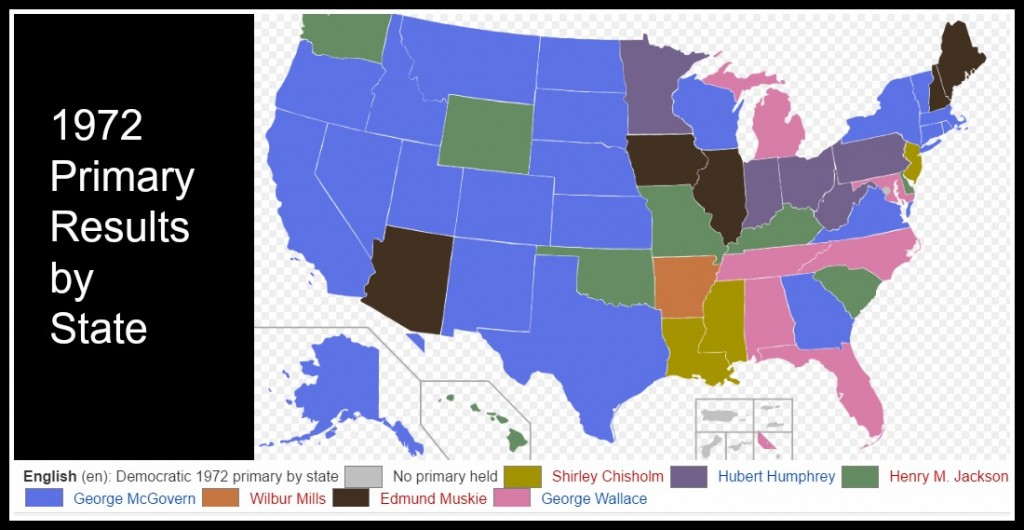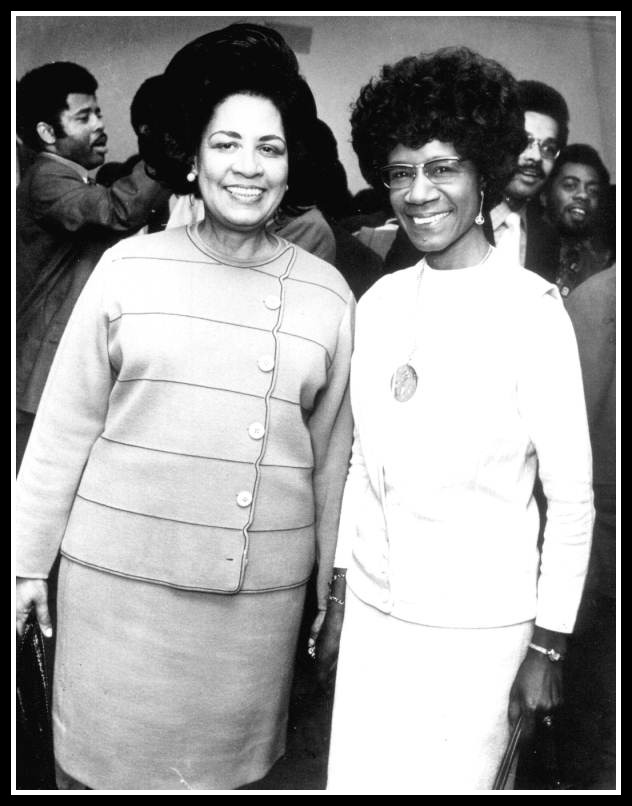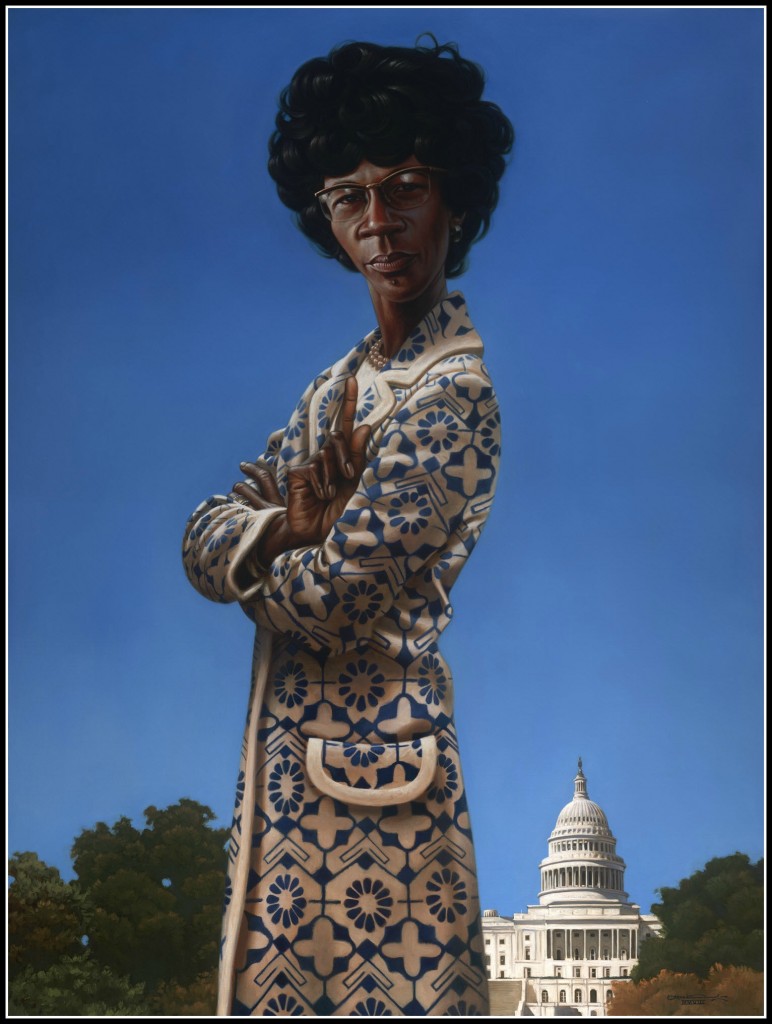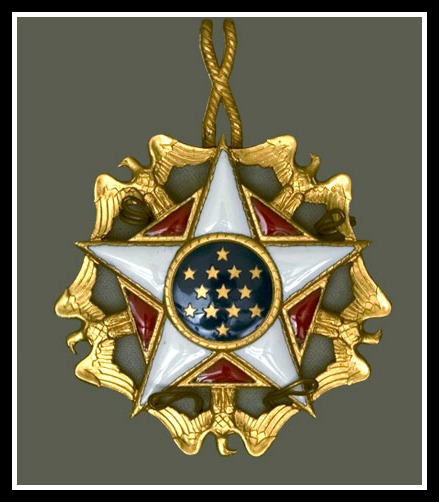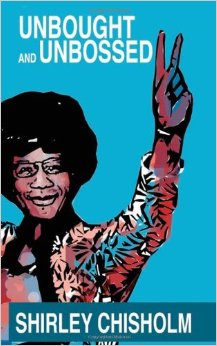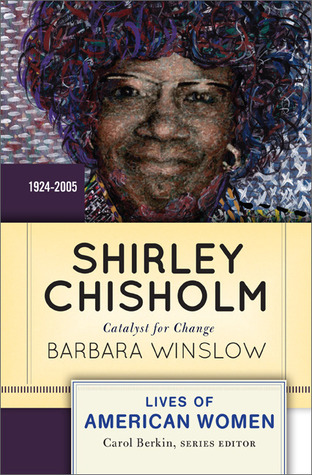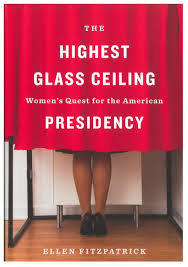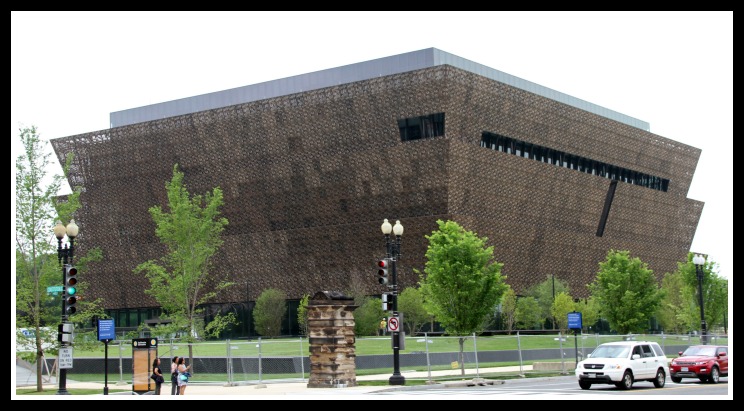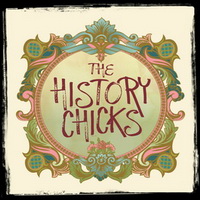We wrap up our short series of “women who ran for the US Presidency before Hillary Clinton” with Shirley Chisholm!
Shirley St. Hill was born in 1924 in Brooklyn, NY to Charles and Ruby St. Hill. Her parents were both immigrants from the West Indies and they made a painful decision to send Shirley and two of her sisters to live their early youth on her grandmother’s farm in Barbados.
Shirley’s education was solid: prestigious Girl’s High in Brooklyn, Bachelors degree in Sociology with a minor in Spanish from Brooklyn College, Masters Degree in Early Childhood Education from Columbia… she was smart, she was quick, she was well spoken, well read and well, she had a dynamic personality wrapped in a very petite frame.
Careerwise she followed an Early Childhood education path that led her as far as working for the New York City Bureau of Child Welfare. Homefrontwise she was followed by her husband Conrad Chisholm who supported her every project (and he cooked!) But Shirley’s real passion was politics and when she saw an opportunity to first run for office she grabbed it- first as an Assemblywoman in New York State, then…drumroll…Congress .
Shirley worked her way up in local politics, city wide civil service and then on to Congress as the first black woman elected for the position. Along the way she stood up up for what she thought was right even if it meant stepping on a few toes and being labeled a troublemaker. (Some may say ESPECIALLY if she was labeled a troublemaker.)
But you don’t get that far politically simply because you fight to be a politician, Shirley got there by fighting for the people in her city. She said she was “Unbought and Unbossed.”
During her tenure in Congress she was against the Vietnam war and anti-abortion laws but supported anything that benefited women, African-Americans and children. To help pave the way for future women and black candidates, in 1972 Shirley Chisholm became the first black woman to run for the office of the President of the United States.
*Cue Hail to the Chief*
She took her run all the way to the Democratic National Convention where she was able to secure 151 delegate votes, not too shabby for a woman who knew she had no chance to win.
But she didn’t run to win. She ran to prove that anyone in the United States could run for the office, that it was a right of ALL the people.
And she proved it.
A compelling speaker and educator, after her 14 years in Congress, Shirley was a college professor, activist and professional speaker on the rights of women, children and minorities. She died at the age of 80 of a stroke on January 1, 2005.
11 years after her death, the first black president of the US, Barack Obama, posthumously awarded her the Preidential Medal of Freedom.
Time Travel
Did find a place online to get the documentary, it’s rentable on YouTube. (Play to the end for the rent link)
https://www.youtube.com/watch?v=Oz8d5PWe5c8
Books!
This is her speech announcing her candidacy for president…it’s amazing. She’s amazing.
National Museum of African American History and Culture is in Washington…or by following the link if you can’t get there easily. (We can’t either, it’s okay…added to our list of places we need to go.) Don’t forget to Instagram if you do with #historychicksfieldtrip!
National Visionary Leadership Project– 250 African American Elders all answering the same question: How do you want to be remembered?

